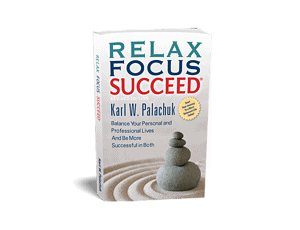Goal-Setting Part 2
I talked Last Time about developing a goal-setting strategy that you can maintain for the rest of your life.
Before you can do anything else on the path to success, you need to develop a habit of daily quiet time. It is literally the the first habit of success. It is first because it comes before everything else. It must be your habit so that all else can follow. It is first because it is the one habit that will drive all the other habits of success.
When you practice daily quiet time, you will take time for relax, to focus, to plan, and so forth. When you fall out of the practice of daily quiet time, you will fall out of practicing all of these other things. And on any day you can get back to practicing quiet time, you will get back to all the others.
What exactly is this quiet time?
Your quiet time might be prayer, or meditation, or just quietly contemplating your day. For some people it’s a daily jog or some time in the garden. Whatever you do, be sure that you find a place and a time to free yourself from other distractions. That means no headphones, no conversations. Just you and the quiet solitude of your thoughts.
For most of us, quiet time will be a simple 15-20 minutes spent in a comfortable chair. Close your eyes. Relax. Let your mind just wander.
Quiet time is most effective if you do it either after or before some period of exercise, reading, or other activity that you know is good for you. Together, this creates a nice little window to spend time thinking about you, your goals, and “the bigger picture” in your life.
Here are a few tips that might get you started:
- Pick a quiet place. Let others know that you need your time and space alone.
- If you have music, make it very gentle background music with no words.
- During quiet time, do not try to work on any projects. Just let your mind wander. This is where the great work is done!
- If you want to try meditation, start with a relaxation meditation.
The most important things are:
1) Do it.
2) Be patient with yourself. Our society puts very little value on quiet time, so your mind will be racing all over the place when you first start.
The Daily Agenda
If you can take an additional 10-15 minutes after your quiet time to think about your day, and how you expect it to go, that will be the real reward. This planning time will help you focus on what matters, identify the clutter in your daily life, and become the time for your goal-setting activities.
Get started today.
Be patient.
Enjoy!







